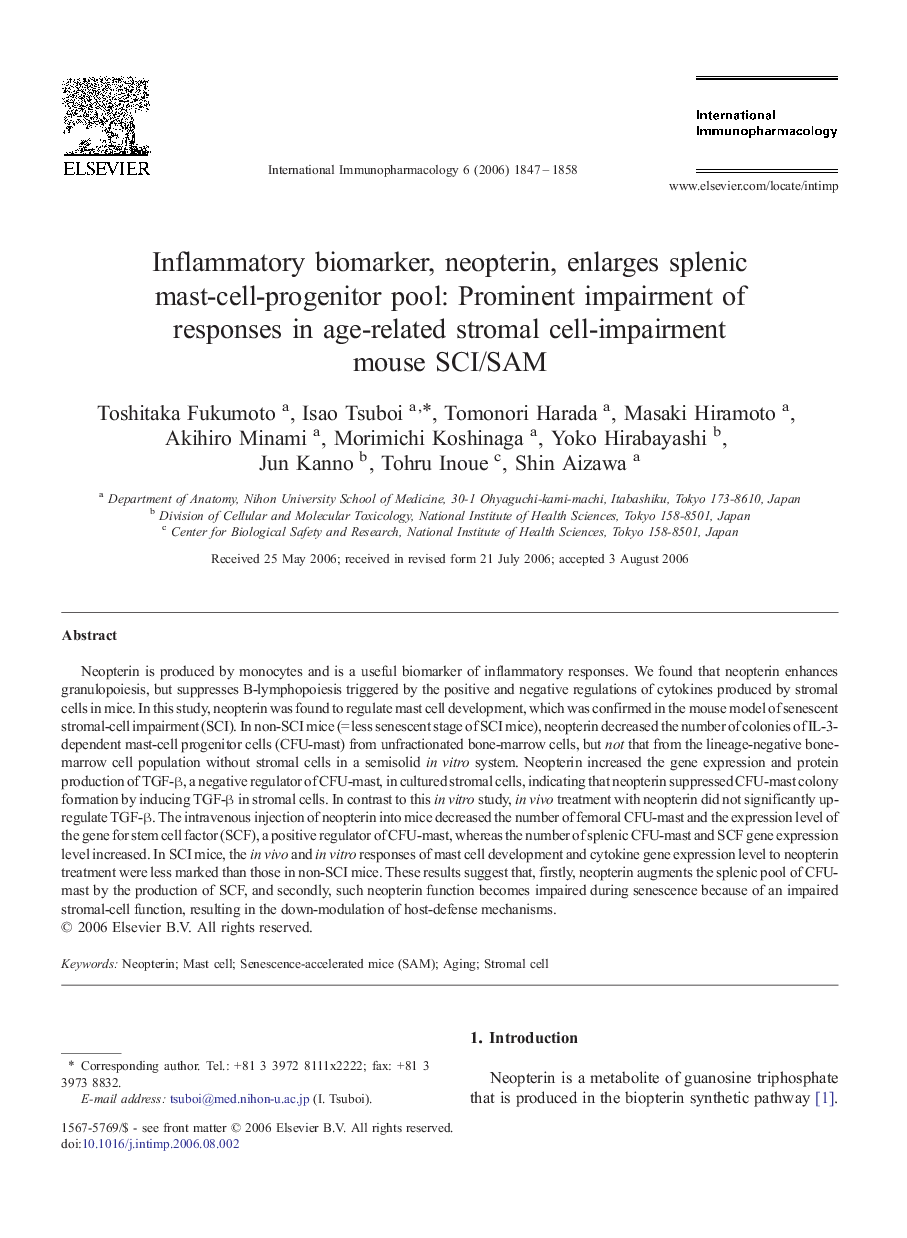| Article ID | Journal | Published Year | Pages | File Type |
|---|---|---|---|---|
| 2541825 | International Immunopharmacology | 2006 | 12 Pages |
Neopterin is produced by monocytes and is a useful biomarker of inflammatory responses. We found that neopterin enhances granulopoiesis, but suppresses B-lymphopoiesis triggered by the positive and negative regulations of cytokines produced by stromal cells in mice. In this study, neopterin was found to regulate mast cell development, which was confirmed in the mouse model of senescent stromal-cell impairment (SCI). In non-SCI mice (= less senescent stage of SCI mice), neopterin decreased the number of colonies of IL-3-dependent mast-cell progenitor cells (CFU-mast) from unfractionated bone-marrow cells, but not that from the lineage-negative bone-marrow cell population without stromal cells in a semisolid in vitro system. Neopterin increased the gene expression and protein production of TGF-β, a negative regulator of CFU-mast, in cultured stromal cells, indicating that neopterin suppressed CFU-mast colony formation by inducing TGF-β in stromal cells. In contrast to this in vitro study, in vivo treatment with neopterin did not significantly up-regulate TGF-β. The intravenous injection of neopterin into mice decreased the number of femoral CFU-mast and the expression level of the gene for stem cell factor (SCF), a positive regulator of CFU-mast, whereas the number of splenic CFU-mast and SCF gene expression level increased. In SCI mice, the in vivo and in vitro responses of mast cell development and cytokine gene expression level to neopterin treatment were less marked than those in non-SCI mice. These results suggest that, firstly, neopterin augments the splenic pool of CFU-mast by the production of SCF, and secondly, such neopterin function becomes impaired during senescence because of an impaired stromal-cell function, resulting in the down-modulation of host-defense mechanisms.
